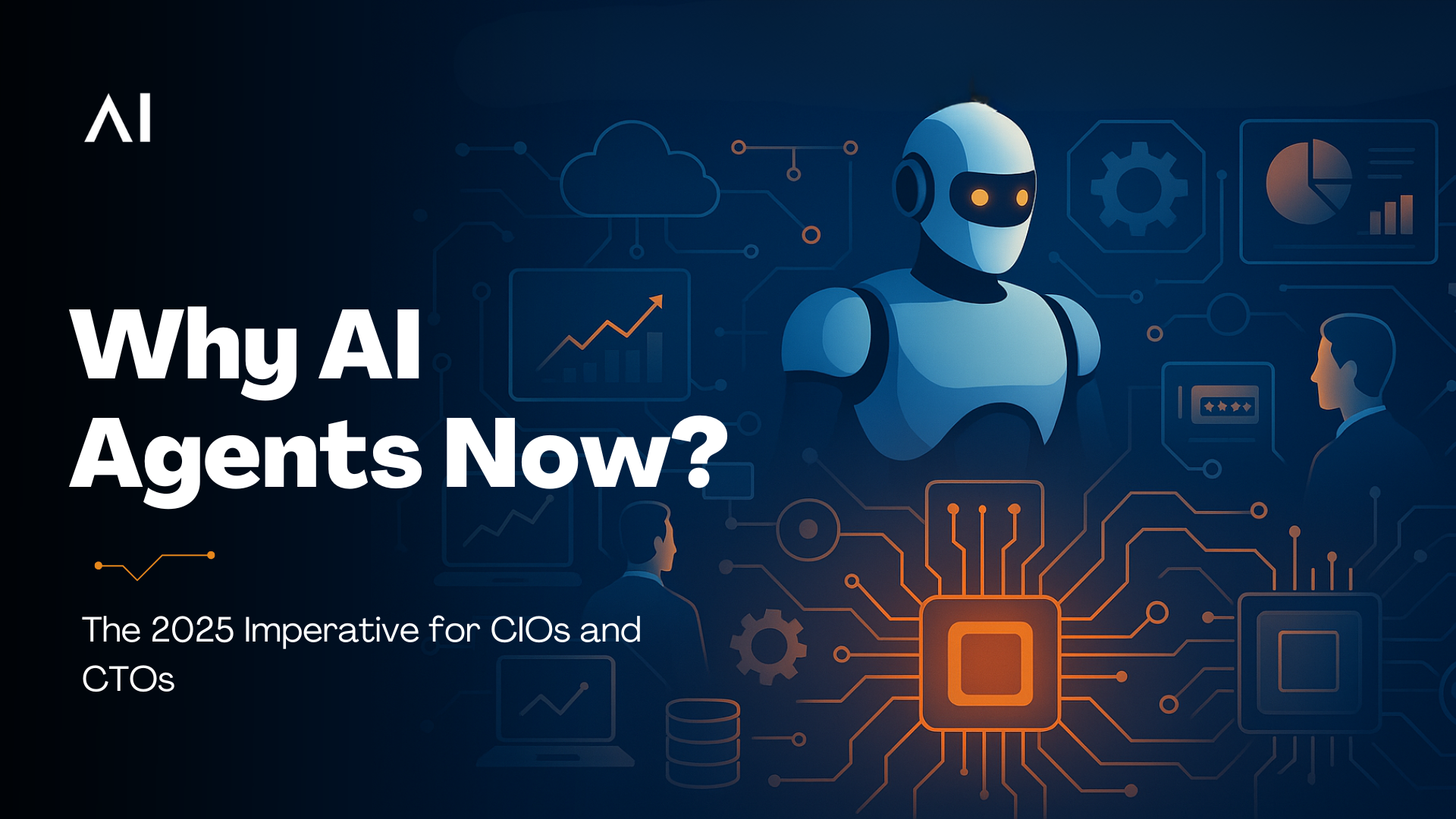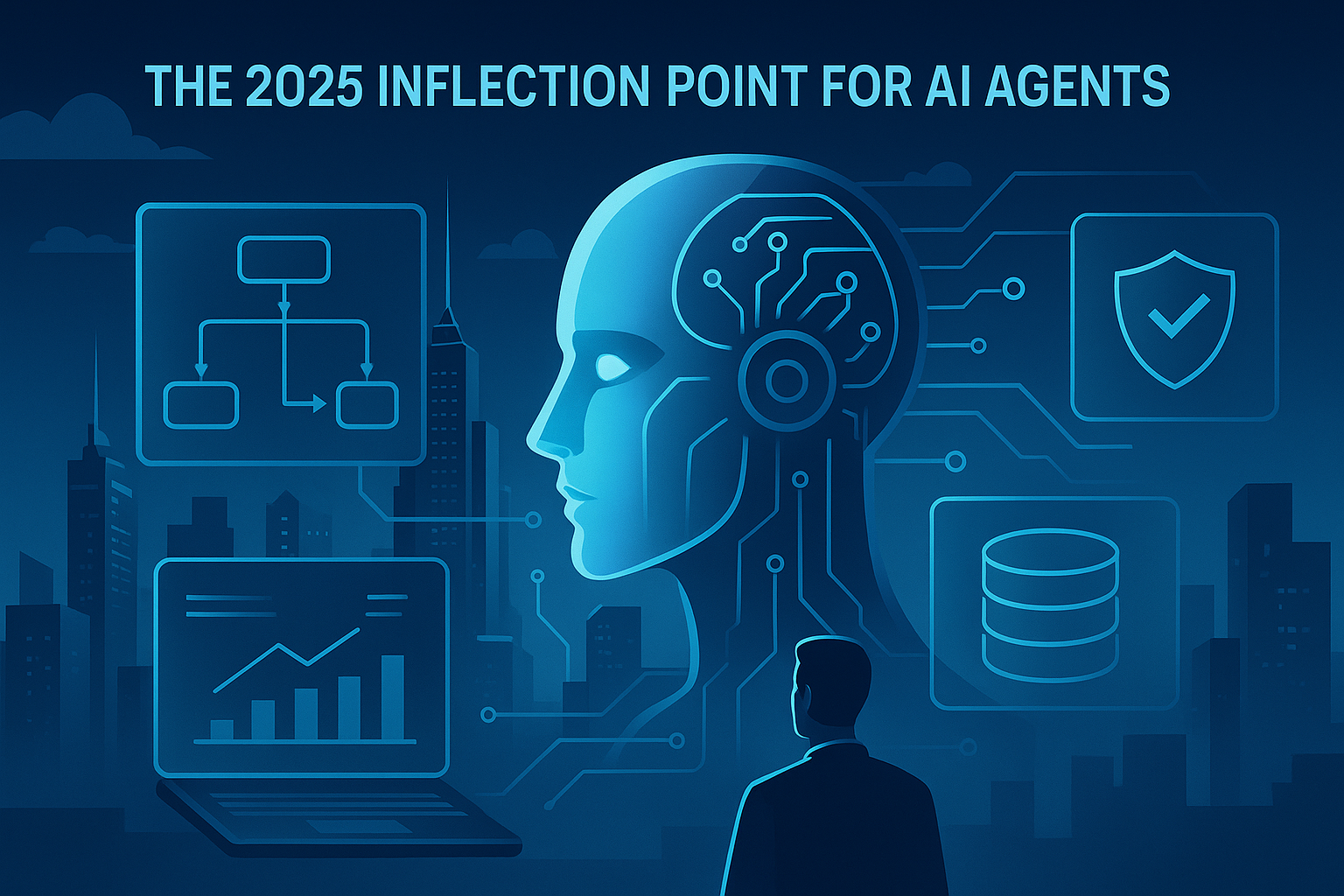Join our WhatsApp Community
AI-powered WhatsApp community for insights, support, and real-time collaboration.
In 2025, AI agents shift from experiments to core enterprise assets, giving CIOs/CTOs speed, agility & advantage—or risking them falling behind.

| Why is AI important in the banking sector? | The shift from traditional in-person banking to online and mobile platforms has increased customer demand for instant, personalized service. |
| AI Virtual Assistants in Focus: | Banks are investing in AI-driven virtual assistants to create hyper-personalised, real-time solutions that improve customer experiences. |
| What is the top challenge of using AI in banking? | Inefficiencies like higher Average Handling Time (AHT), lack of real-time data, and limited personalization hinder existing customer service strategies. |
| Limits of Traditional Automation: | Automated systems need more nuanced queries, making them less effective for high-value customers with complex needs. |
| What are the benefits of AI chatbots in Banking? | AI virtual assistants enhance efficiency, reduce operational costs, and empower CSRs by handling repetitive tasks and offering personalized interactions. |
| Future Outlook of AI-enabled Virtual Assistants: | AI will transform the role of CSRs into more strategic, relationship-focused positions while continuing to elevate the customer experience in banking. |
We’ve entered a defining year for enterprise AI adoption. The technology behind AI agents—especially Agentic AI frameworks—has matured enough to deliver real business value at scale. CIOs and CTOs are now faced with a strategic question: not whether to implement AI agents, but how fast and how broadly they can be deployed without compromising security, governance, or ROI.
The acceleration isn’t just about better algorithms. It’s about the convergence of:
In 2025, AI agents are no longer experimental side projects — they are core members of the enterprise workforce, unlocking capabilities at a scale and speed unmatched by human-only teams. This transformation is accelerating enterprise capabilities in ways few anticipated.
This is why 2025 is not just another “AI hype” year—it’s the moment when enterprise AI agents become the invisible workforce powering core operations.

Before diving into the leadership perspective, it’s important to understand how AI agents work at an enterprise level. Unlike traditional RPA bots or pre-programmed automation scripts, AI agents operate with autonomy and context awareness.
At a technical level, an AI agent in the enterprise typically has:
For example, a procurement AI agent in a manufacturing firm might:
This is beyond automation—it’s orchestration combined with decision-making.
Modern AI agents thrive on context-rich data — and the winners in 2025 will be those who can capture, structure, and act on it in real time. Context is becoming the new currency of enterprise AI, and ignoring it means leaving massive value untapped.
WaitFor technology leaders, AI agents in 2025 are more than a cost-saving measure. They’re a strategic necessity for three main reasons:
In 2025’s competitive climate, speed of execution is the advantage.
For CIOs and CTOs, waiting is not a strategy — it’s a competitive risk. Leaders now need a clear roadmap to plan, deploy, and scale these systems. Our Enterprise Agentic AI Playbook breaks down exactly how to do that.
In each of these sectors, AI agents aren’t replacing entire teams—they’re augmenting them, allowing human employees to focus on creative, strategic, and relationship-driven work.
Enterprise leadership in 2025 can’t just “deploy and forget” AI agents. The Agentic AI governance model must be part of the rollout:
Building trust in AI agents is as much about operational transparency as it is about performance.
Successful adoption in 2025 depends on seamless integration. CIOs and CTOs need to evaluate:
The gold standard is a multi-agent ecosystem, where different agents—finance, operations, customer service—share context through a unified memory layer while staying specialized in their domains.
In 2025, CIOs and CTOs are no longer just technology gatekeepers—they are strategic architects shaping business models. AI agents provide a new decision-support layer, capable of processing millions of data points across operational, financial, and market dimensions in real time. For leadership, this means moving from reactive decision-making to proactive, insight-led strategies. Imagine a CTO reviewing a quarterly performance dashboard—not compiled over weeks by analysts, but generated in minutes by AI agents that have already identified root causes, suggested process changes, and simulated potential outcomes. This capability empowers leaders to test bold initiatives with confidence, knowing they can validate assumptions quickly and pivot without the operational lag of traditional reporting cycles. In a competitive market where agility defines winners, AI-powered decision-making isn’t just support—it’s leadership leverage.
Enterprises that invest in AI agents now, under decisive CIO and CTO leadership, gain two competitive edges:
By mid-2025, the gap between AI-enabled enterprises and traditional operators will be extremely hard to close.
For CIOs and CTOs, the AI agent conversation is no longer about experimentation—it’s about execution at scale. In 2025, these autonomous, context-aware systems are poised to become the operational nervous system of the enterprise.
The decision isn’t whether you can afford to implement AI agents.
The decision is whether you can afford not to—because by the time the market proves their value, the real advantage will belong to those who acted when the opportunity was still young.
Fluid AI is an AI company based in Mumbai. We help organizations kickstart their AI journey. If you’re seeking a solution for your organization to enhance customer support, boost employee productivity and make the most of your organization’s data, look no further.
Take the first step on this exciting journey by booking a Free Discovery Call with us today and let us help you make your organization future-ready and unlock the full potential of AI for your organization.

AI-powered WhatsApp community for insights, support, and real-time collaboration.
.webp)
.webp)

Join leading businesses using the
Agentic AI Platform to drive efficiency, innovation, and growth.
AI-powered WhatsApp community for insights, support, and real-time collaboration.